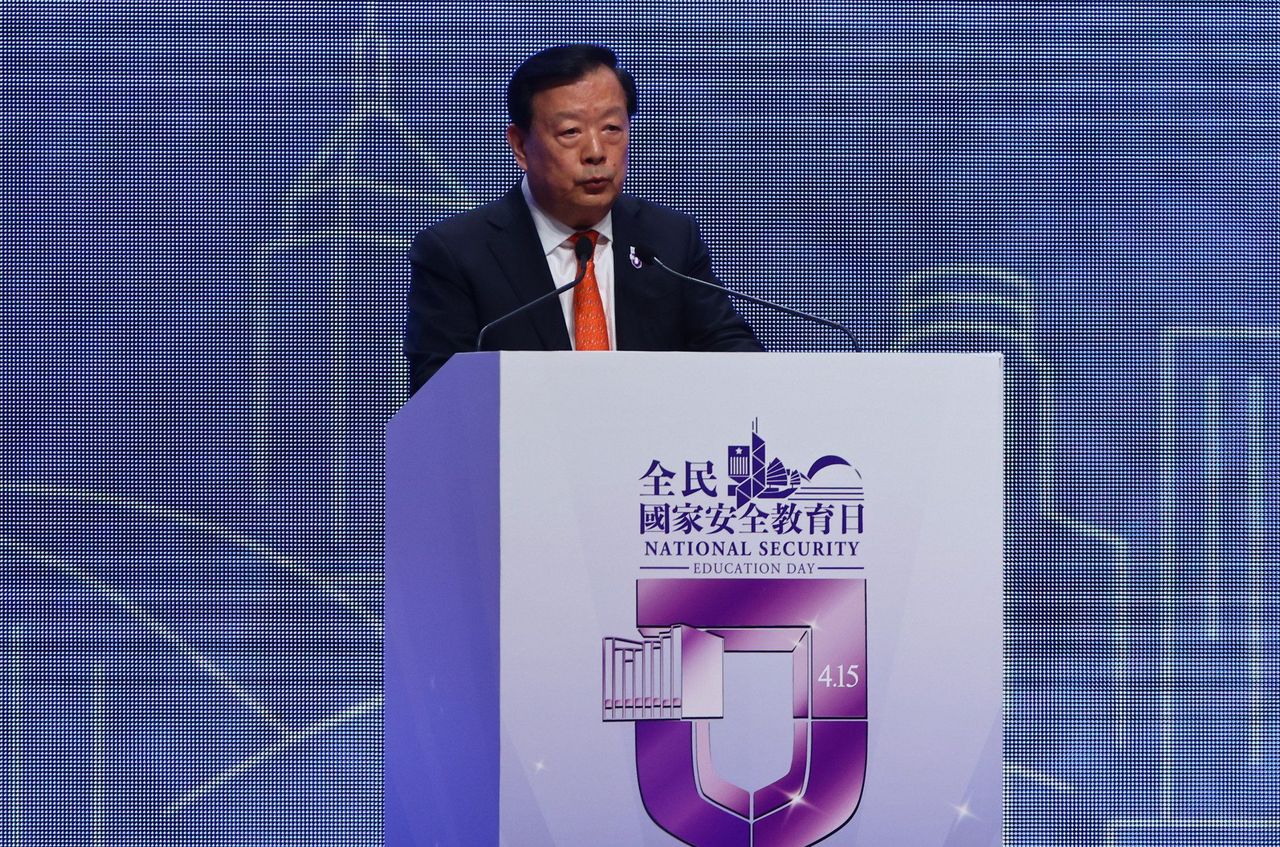Hong Kong News

Beijing assigns 5 political veterans to top decision-making body for Hong Kong, Macau
Beijing has assigned five Communist Party veterans specialising in security and foreign affairs, as well as from the Central United Front Work Department, to its highest decision-making body for Hong Kong and Macau policies, all under the helm of the country’s executive vice-premier, the Post has learned.
According to one source, the reshuffle indicated Beijing want to focus on developing its two special administrative regions, while “keeping a close eye on the security aspects”.
The Post earlier reported that Ding Xuexiang, the sixth-ranking Politburo Standing Committee member, was appointed as the leader of the newly-revamped ruling Communist Party’s Central Leading Group on Hong Kong and Macau Works.
Xia Baolong, who was brought in to head up the Hong Kong and Macau Affairs Office (HKMAO) in 2020, was expected to stay on as the new leading group’s executive deputy leader to ensure the ministerial-level body smooth transitioned to the direct oversight of the party’s top brass.
Another source, who is familiar with the matter said that, along with Xia, four other deputy leaders would join the new leading group, including two members from the 25-strong Politburo and two State Councillors.
The Politburo and its Standing Committee are the Communist Party’s centres of power, which are led by Chinese President Xi Jinping, while the State Council is the country’s cabinet.
 Xia Baolong, director of the Hong Kong and Macau Affairs Office, speaks
at seminar marking Hong Kong’s National Security Education Day during
his fact-finding visit to the city.
Xia Baolong, director of the Hong Kong and Macau Affairs Office, speaks
at seminar marking Hong Kong’s National Security Education Day during
his fact-finding visit to the city.
The two Politburo members set to join the leading group are Central United Front Work Department director Shi Taifeng, who also serves as a vice-chairman on the Chinese People’s Political Consultative Conference, the country’s top political advisory body, and Chen Wenqing, secretary of the Central Political and Legal Affairs Commission (CPLAC), the party’s top body overseeing security and law enforcement.
The two State Councillors are Minister of Public Security Wang Xiaohong, who also serves as Chen’s deputy, and Minister of Foreign Affairs Qin Gang.
“Development is the main theme here, as Ding’s main task is to push forward Hong Kong and Macau integration with the mainland, under the Greater Bay Area plan,” the first source said.
The bay area referring to Beijing’s initiative to integrated Hong Kong, Macau and nine southern Chinese cities into an economic and business hub.
“But he will be assisted by the top officials in security, United Front Work and foreign affairs because Hong Kong’s security and its role in China’s overall diplomacy are also important objectives,” he said.
Xia, who has reached retirement age and no longer holds a top position after stepping down from the country’s top political advisory body, would be “instrumental” as the group’s executive deputy leader and heading its office, which was now officially known as the Central Hong Kong Macau Works Office, according to the source.
Xia is currently in Hong Kong for a six-day fact-finding trip, during which he attended Saturday’s events marking National Security Education Day. Whilst in the city, he will gather feedback from local representatives and assess the situation on the ground ahead of an organisational overhaul.
In March, Beijing announced it would switch the reporting line for the HKMAO from the State Council to the Communist Party’s central leadership, with the aim of clarifying the chain of authority and strengthening the party’s overall control over Hong Kong and Macau.
Aside from bringing over all existing HKMAO staff, the new Central Hong Kong Macau Works Office would have “expanded functionalities”, the source said, declining to provide further details.
The second source, who confirmed the leading group’s new line-up, said the list of appointees had yet to be finalised.
Other members in the line-up included Zheng Yanxiong, Beijing’s newly appointed Hong Kong Liaison Office director, and his counterpart in Macau, Zheng Xincong, with the pair to be joined by “top provincial officials in Guangdong and municipal officials in neighbouring Shenzhen city”, he added.
The new leadership composition closely aligns with the list of appointees put forward in 2018, which was helmed by executive vice-premier Han Zheng and featured a deputy leadership made up of top security and foreign affairs officials.











